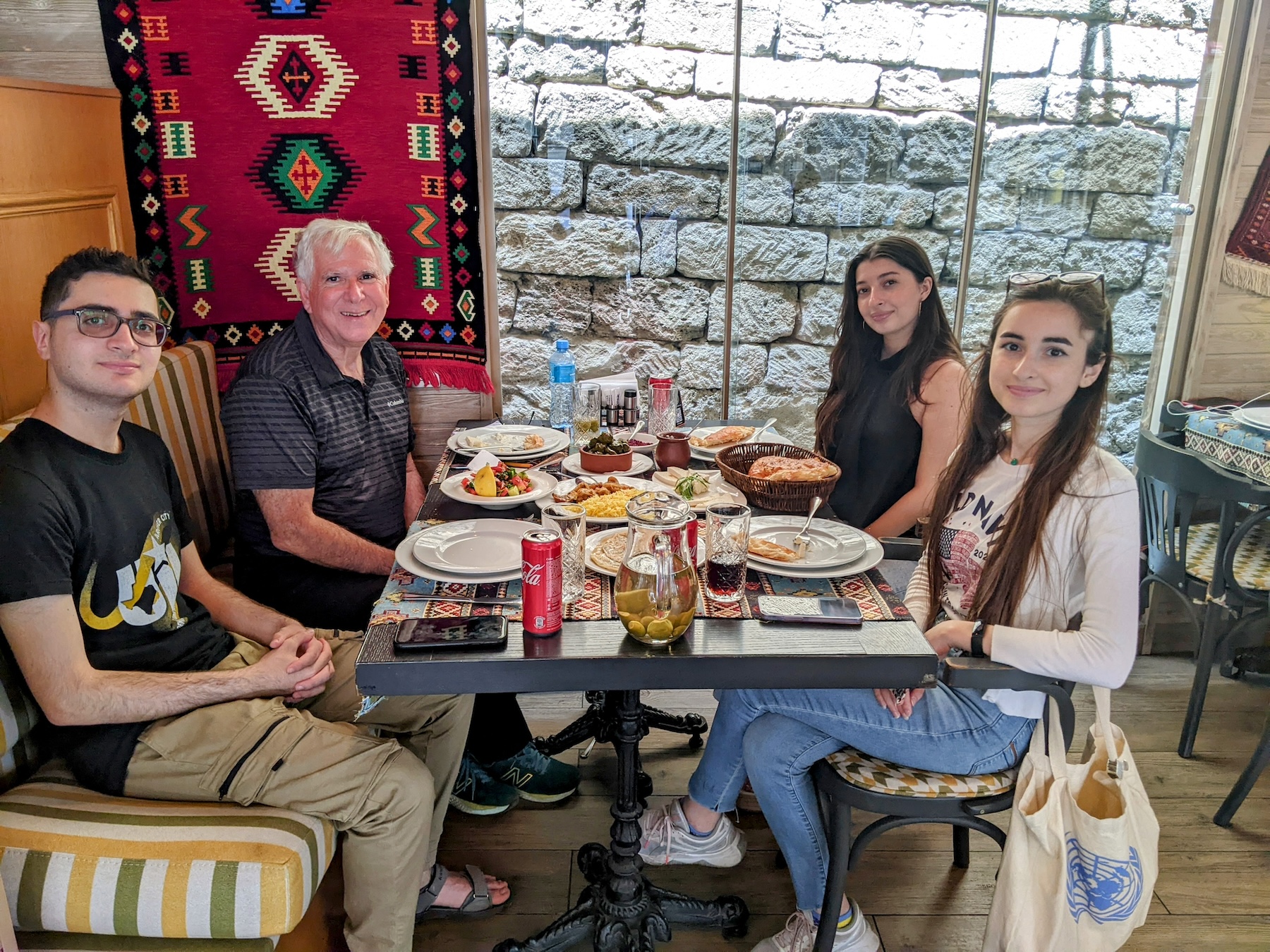Youth Exchanges: "The Perfect Fit" for This Volunteer, by Jon Schaffer
Ten years ago, while in Almaty, Kazakhstan, I found myself in the midst of a unique endeavor: picking up high school students destined for a year-long journey in the United States. As I shuttled them to their new chapter abroad, they bombarded me with questions: “Will I see the Grand Canyon?” or “Can I take dance classes in my host school?” Meanwhile, their parents, gripped with concern, sought assurances about their children’s safety from the specter of gun violence in America.
Thus began my decade-long work as a volunteer with the American Councils for International Education. Retiring from my career with the Department of State, I sought an avenue to channel my skills and curiosity for diverse cultures.
The American Councils proved to be the perfect fit. I not only participate in evaluating applications from high school students across 22 European and Eurasian countries for the State Department-funded Future Leaders Exchange Program (FLEX), but I also engage closely with these students and alumni both in the United States and abroad.
From Kyrgyzstan, Kazakhstan, and Georgia to Romania, North Macedonia, and, most recently, Azerbaijan, I have met with young people who give me hope that the tremendous challenges our world faces will be met with thoughtful, caring, insightful and proactive youth who will strive to advance their own country’s social and economic infrastructure with the skills and understanding they gained while in the United States.
In this journey, I've gained more than just acquaintances; I've amassed a legion of new Facebook friends.
 “My FLEX experience showed me how capable I am to make changes in this world,” Azerbaijani alumna Nazrin Guliyeva shared in a recent message to me. “The year I spent in the United States taught me how to manage my life, find out my passion, interest, and skills that I wasn’t aware of and build my career around them.”
“My FLEX experience showed me how capable I am to make changes in this world,” Azerbaijani alumna Nazrin Guliyeva shared in a recent message to me. “The year I spent in the United States taught me how to manage my life, find out my passion, interest, and skills that I wasn’t aware of and build my career around them.”For Mahabbat Ahmadli, another alumna, her exchange year forms an indelible link in the chain of her life. “I’ve learned to cherish the beauty of serving the world,” she says.
In the photo, Jon is pictured at a luncheon in Baku, Azerbaijan, with three alumni of the FLEX program, now college students.
Securing a spot in the FLEX program is no small feat. Currently, only about one in 50 students who apply for a FLEX scholarship is accepted. In most FLEX countries, they must pass English exams, undergo interviews with American Councils staff in-country, and participate in a group activity with other applicants. They will write a series of essays, provide details on their homelife and extracurricular activities, and get teacher recommendations. We, as evaluators, review the staff interview reports, essays, activities, and recommendations to help find the very best candidates. Those successful candidates will then spend the next year living in the homes of Americans and attending high schools throughout our country.
“Exchange programs to the U.S. have an incredible impact on high school students,” Lisa Choate, president and CEO of American Councils told this author. “An exchange year in the U.S. opens their minds, and they see opportunities that they didn’t know existed. They meet Americans, make life-long friends, and think of those people as a second family.” Choate says that most alumni stay in touch with their host families and friends for decades, creating intensely personal and deeply felt bonds between communities and countries. “They (and we) benefit as individuals, and our country gains young people with a bright future who understand it and think of it as home. That relationship is invaluable.”
It’s no exaggeration to say that FLEX alumni emerge as trailblazers and changemakers, founding nonprofits, launching businesses, and assuming roles as educators, lawyers, and even governmental leaders. Beyond FLEX, American Councils administers programs like the Kennedy-Lugar Youth Exchange and Study (YES) program fostering a deeper understanding of American society among high schoolers from countries with significant Muslim populations. The Teachers of Critical Languages Program brings educators from China, Egypt, Morocco, and Taiwan to the United States to teach Mandarin or Arabic in U.S. K-12 schools, while the Critical Language Scholarship program offers American college students summer-long immersive language study-abroad experiences in thirteen languages (from Chinese, Korean, and Arabic to Urdu, Russian, and Turkish) crucial to America’s global engagement.
Choate says that volunteers and the expertise they bring are critical to the evaluation process and very fulfilling for these essential workers who gain “a fascinating window in the world of teens – their aspirations, dreams, and realities.”
For those interested in volunteering for the American Councils for International Education, information is available here.
Jon Schaffer served as Vice President of the Public Diplomacy Association of America; he was a director in the International Information Programs Bureau at USIA and State.
This article appeared in the May edition of Public Diplomacy Today, a member newsletter.